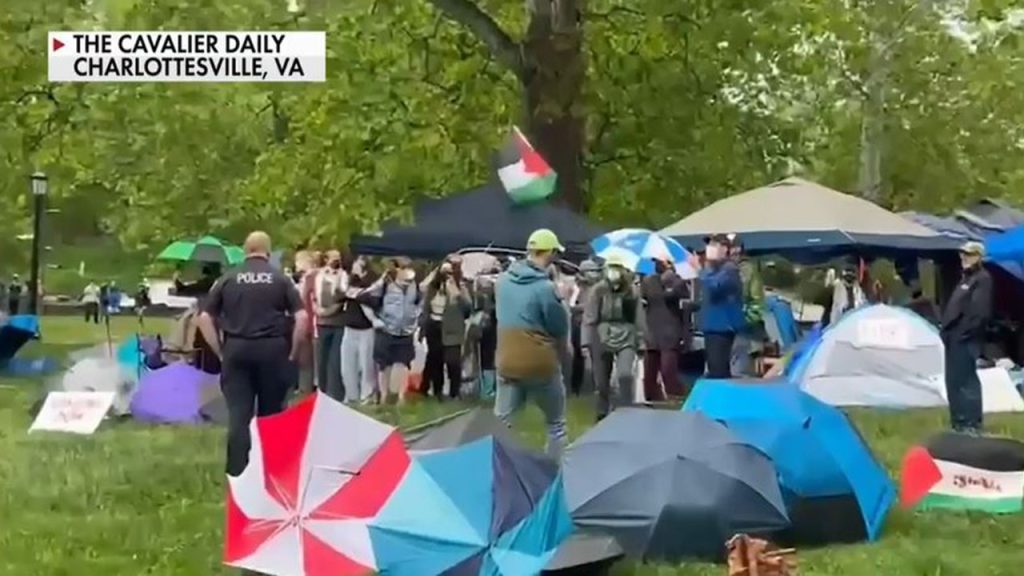At the University of Virginia campus, at least 25 anti-Israel protesters were arrested by authorities as they tried to clear an encampment. The University Police Department declared an “unlawful assembly” and gave protesters 10 minutes to leave the area near the University Chapel. When officials attempted to collect tents, they were met with agitation, chanting, and violent gestures from the protesters. Despite several warnings, the protesters refused to comply with university policies regarding protests, leading to their arrest on suspicion of trespassing.
The scene on campus became tense as the Virginia State Police were called in to assist local authorities in clearing the protesters. UVA President Jim Ryan expressed disappointment in the protesters’ refusal to comply with rules and stated that they were given multiple opportunities to do so. The decision to arrest the protesters was made to maintain the safety, operations, and rights of the entire university community. Those arrested on suspicion of trespassing were taken to the Albemarle County Regional Jail, and university officials were still determining how many of them were affiliated with the school.
UVA Encampment for Gaza, a group associated with the protesters, posted video footage of clashes between the protesters and police online. The post blamed UVA President Jim Ryan for instigating the chaos and accused the authorities of using militarized police with riot gear and deploying pepper spray and tear gas on the protesters. The group’s message, directed at the university and law enforcement, criticized their actions as contributing to the suppression of free speech and peaceful protest.
The incident at the University of Virginia campus reflects the ongoing tensions and conflicts surrounding the Israeli-Palestinian conflict and issues related to protests and free speech on college campuses. The presence of the Virginia State Police and the arrests made by authorities highlight the challenges faced by universities in managing demonstrations and maintaining order while upholding the rights of individuals to express their opinions. The confrontation between protesters and law enforcement underscores the complexities of addressing contentious and emotionally charged issues in a public forum.
The aftermath of the arrests at the University of Virginia campus may have lasting implications for the university community and its relationship with advocacy groups and protesters. The actions taken by authorities to remove the encampment and arrest individuals involved in the protest raise questions about the balance between ensuring public safety and respecting the rights of individuals to engage in peaceful demonstrations. The fallout from the incident, including the backlash against UVA President Jim Ryan and law enforcement, highlights the polarization and divisiveness of the Israeli-Palestinian conflict and how it manifests in different settings, including educational institutions.
In conclusion, the arrest of anti-Israel protesters at the University of Virginia campus underscores the challenges faced by universities in managing demonstrations and upholding the rights of individuals to express their views on contentious issues. The incident reflects the ongoing tensions related to the Israeli-Palestinian conflict and the complexities of addressing such conflicts in a university setting. The aftermath of the protests and arrests may have lasting repercussions for the university community and its relationships with advocacy groups and protesters. As universities continue to navigate issues of free speech, public safety, and civil discourse, the incident serves as a reminder of the difficult balancing act required to maintain order and respect diverse perspectives in a complex and dynamic environment.


